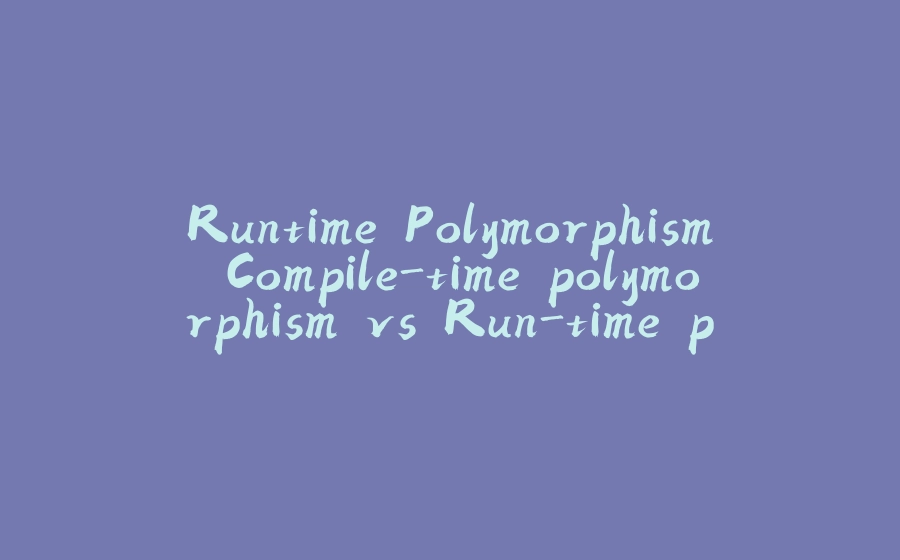In this post, you will understand,
- What is run-time polymorphism?
- What is compile-time polymorphism?
- What does it happen in the compile-time & run-time?
Run-time polymorphism
You may look at the following classes.
//Parent class
class Parent {
public void eat(){
System.out.println("Parent - eat()");
}
}
//Child class
class Child extends Parent {
@Override
public void eat() {
System.out.println("Child - eat()");
}
}
public class OOPDemo {
public static void main(String args[]){
Parent obj = new Child();
obj.eat();
}
}
Enter fullscreen mode Exit fullscreen mode
In this example, I have created a parent class, child class, and the main class. Then I have created a Child object by Parent reference. Now let’s check what happens in the compile-time and run-time.
Compile-time
- In compile time it takes care of the Parent reference.
- Because objects are created in the run time.
- First, it checks is there any eat() method in Parent class.
- In this example Parent class has eat() method.
- So it doesn’t give any exception in the compile-time and compilation will be a success.
Run time
- At the run time it takes care of the Child reference and it creates the new child object.
- Then it checks is there any eat() method in Child class.
- There is an eat() method in Child also.
- Then this method will be called at the run time.
- It means object creation is happening at the run time by JVM and Run time is responsible to call which eat() method to call.
- That is why it is called run-time polymorphism (Dynamic polymorphism)
Compile-time polymorphism
class Animal{
public void eat(){
System.out.println("Eat method");
}
public void eat(int quantity){
System.out.println("Eat method with quantity");
}
}
public class ReferenceDemo {
public static void main(String args[]){
Animal animal = new Animal();
animal.eat();
}
}
Enter fullscreen mode Exit fullscreen mode
In this case, a single class has the same methods with two different parameters. As you know it is called method overloading.
Compile-time
- In compile time it checks animal.eat() method in Animal class.
- No arg eat() method is there in the animal class.
- According to the parameter list, it will call which method should be called.
- Then the compilation is OK.
Run time
- At the run time it creates the same Animal type object.
- Then it checks the same thing that it did at the compile time.
- It means compile time is enough to check which method should be called.
- That is why it is called Compile time polymorphism (Static polymorphism).
Final words !
Overriding = run-time polymorphism = dynamic polymorphism
Overloading = compile-time polymorphism = static polymorphism
More info: www.javafoundation.xyz
原文链接:Runtime Polymorphism Compile-time polymorphism vs Run-time polymorphism























暂无评论内容